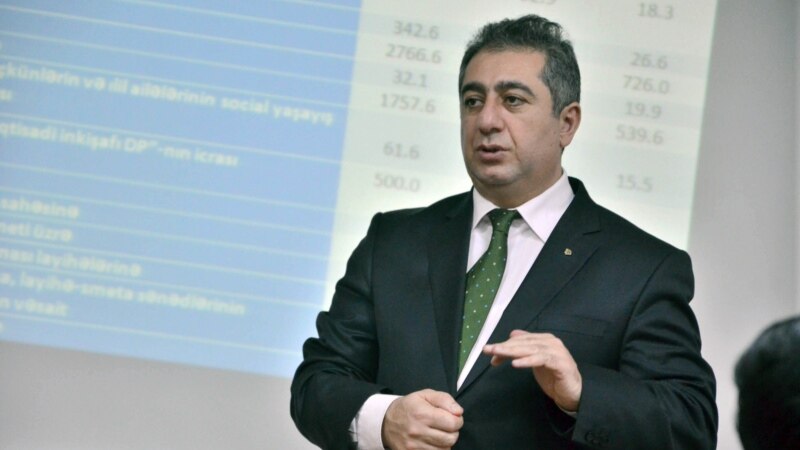
The prison death last week of Russian opposition leader Alexey Navalny has elevated fears for the welfare of politically active prisoners in neighboring Azerbaijan, including economist Gubad Ibadoglu.
“As his family, we are worried that my brother may be physically destroyed in the conditions of the detention center,” Ibadoglu’s brother, Qalib Toghrul, told VOA.
Toghrul said he last saw Ibadoglu on February 17 and that his health had significantly deteriorated.
“Now, I am unequivocally convinced that they are carrying out the process of purposefully destroying my brother’s body, part by part,” Toghrul said. “Of course, after Navalny’s death, we are under great tension and anxiety that the level of danger, the risk of danger to my brother’s life, has increased even more.”
Ibadoglu, chairman of the Democracy and Prosperity Party, has been in pretrial detention since July 2023, charged with the acquisition or sale of counterfeit money or foreign currency by an organized group and the preparation, storage, or distribution of religious extremist materials.
Ibadoglu denies the accusations and says his arrest is a political order related to his political activism.
Bahruz Maharramov, a member of the Azerbaijani Parliament, told VOA that neither Ibadoglu nor any other person is subjected to any illegal or unnecessary procedural coercive measures.
“In this sense, it should be noted once again that the arrest of Ibadoglu is not a political issue,” he said. “A criminal prosecution has been initiated on specific facts, and the main goal of the state structures during the investigation is to ensure the implementation of this process on the basis of equality of rights before the law and the court in the criminal process.”
According to Toghrul, Ibadoglu suffers from several health issues. Ibadoglu receives IV treatment at the medical unit of the Baku Pre-Trial Detention Center, “but after the IV is done, they immediately take him to his cell without allowing him to lie down and rest for even a minute,” said Toghrul.
He said that though the Penitentiary Service has a specialized treatment facility for IV therapy and “other complex inpatient treatments,” authorities refuse to transfer Ibadoglu there.
VOA sought comment from the Penitentiary Service, the Office of the Ombudsman, the Baku Detention Center and the investigative body conducting the criminal case but have yet to receive a response.
Opposition leader’s family concerned
The family of opposition leader Tofiq Yagublu is also voicing concern about his deteriorating health.
“We are very worried about his weight loss. Now, he is being examined at the initiative of the Penitentiary Service,” his daughter, Nigar Hezi, told VOA.
Hezi believes the deaths of Navalny and other political prisoners in Russia and neighboring countries warrant extra attention to be paid to political prisoners in Azerbaijan.
“Navalny’s death in Russia has created a trend in the post-Soviet countries,” she said. “After Navalny, a journalist died in Belarus. All this is cause for concern.”
Yagublu has been arrested numerous times and is being held in pretrial detention on charges of “massive fraud.”
International organizations have recognized him as a prisoner of conscience.
International calls
“If [President Ilham] Aliyev attends, other leaders must press him to release Gubad Ibadoglu from illegal detention,” former U.S. Ambassador to Azerbaijan Richard Kauzlarich wrote on X, before the Munich Security Conference. “Otherwise, like Navalny, Gubad may die in prison.”
A number of countries and international organizations, including the U.S. State Department and U.S. senators and representatives, have called for Ibadoglu’s release.
U.S. Representative David Rouzer introduced a resolution in the U.S. House of Representatives last week condemning Ibadoglu’s treatment.
The resolution also urges the secretary of state to “continue prioritizing Dr. Ibadoglu’s well-being and release in all engagements with the Government of Azerbaijan.”
On February 15, Ibadoglu’s pretrial detention was extended by three months.
This story originated in VOA’s Azerbaijani Service.
